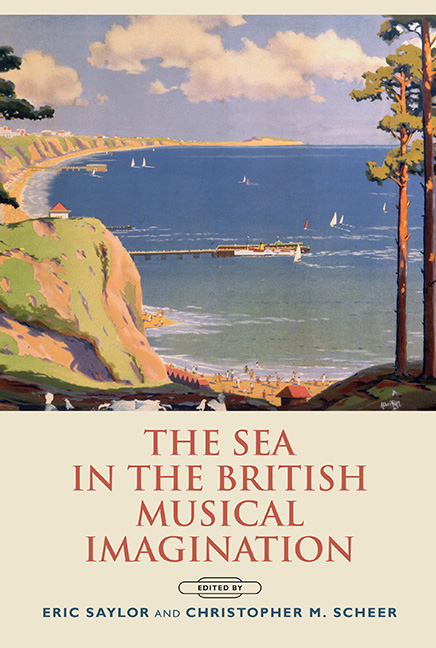1 - ‘Britannia Rule the Waves’: Maritime Music and National Identity in Eighteenth-Century Britain
Published online by Cambridge University Press: 12 June 2021
Summary
THE OCEAN HAS long defined British identity, in terms of both how Britons view themselves and how their country is regarded abroad. Citizens’ pride in the country's maritime tradition – and its navy's command over the seas – had been growing since the era of the Elizabethan sea-dogs, and was reflected in the famous encomium Shakespeare assigned to John of Gaunt in 1595: ‘This precious stone set in a silver sea, / Which serves it in the office of a wall / Or as a moat defensive to a house, / Against the envy of less happier lands; / This blessed plot, this earth, this realm, this England’. When the Kingdom of Great Britain was forged in 1707, the watery perimeter that Scotland, England, and Wales shared helped mitigate some of the persistent cultural differences among them. Britain's ability to defend and control the surrounding waters was increasingly emphasized in an effort to submerge some of its constituent countries’ underlying competitiveness. Unlike nations whose territory was defined by invisible, often arbitrary land-based lines, Great Britain's marine border meant that ‘the image of the sea has been the image of the nation’.
These changes in British attitudes towards the ocean were reflected in the nation's poetry and music. By the eighteenth century, songs increasingly focused on ‘Gloriana's sailor-heroes who had circumnavigated the globe, singed the King of Spain's beard, swept the oceans of pirates and Catholics, and thereby opened up the sea-routes across which English migrants would travel, and English trade would flow, until Britannia majestically ruled the waves’. Much of Britain's maritime identity was built on two ways of viewing the ocean: first, as the gateway to a global marketplace, and second, as the protective border – ‘the liquid fence of Neptune’ – that could be defended by a strong navy. Music helped shape national attitudes towards these two dimensions, in formats ranging from simple vocal broadsides to elaborate instrumental and theatrical works. The nautical references in eighteenth-century British music fostered a sense of British – as distinct from English, Scottish, or Welsh – patriotism, entertained listeners with depictions of love and relationships, and awakened a sense of increased social responsibility among citizens.
- Type
- Chapter
- Information
- The Sea in the British Musical Imagination , pp. 11 - 30Publisher: Boydell & BrewerPrint publication year: 2015

